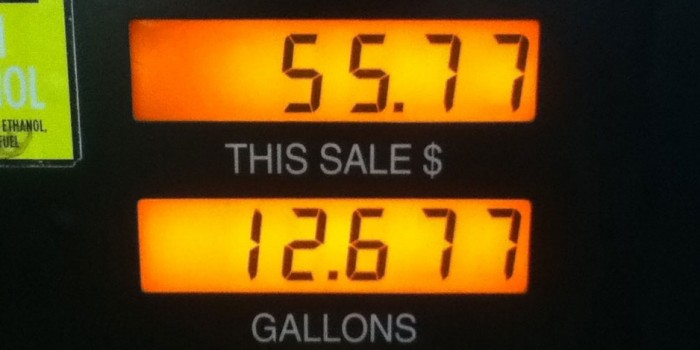Learning from Bus Buddhists
In psychological terms, context is almost everything. Much as we like to think that we know how we will act and react in a given situation, without the richness of...
Panic at the Pumps: How Mention of a Shortage Sparks Panic Buying

In the past week there has been a fuel shortage in the UK. This wasn’t the result of any change to the supply of fuel, but by dramatically increased demand. That demand was triggered by government advice that people should fill up their cars because a strike by petrol tanker drivers was quite likely.
The media, who were of course the ones who were so quick to pass on the views of government ministers and report the threat of strike action from the drivers’ union, were then surprised when consumers started queuing for fuel and stations ran dry. Why, they wondered, were people queuing for fuel when there was no confirmed strike?
The answer, from a psychological standpoint, is very simple: loss aversion….
… with a bit of social proof, some availability bias and the influence of authority.
But not necessarily in that order.
First was the availability bias and influence of authority. All the news stories – and remember, we now live in an age of constant news coverage (more’s the pity) – were broadcasting the message that the government was advising people to stock up on fuel. This meant that it would be very hard for anyone to drive past a fuel station and not think about the impending crisis.
Faced with this thought the unconscious mind goes into protective mode: what do I stand to lose if I don’t stop for fuel? How likely is it that I will regret it?
Most of us depend on our cars for transportation. Our livelihood may even depend on it. Add in the risk of being stranded if we run out of fuel miles from home, the possibility of leaving our children stranded somewhere or the inability to get to an event we’ve been looking forward to eagerly, and the risk of finding ourselves saying, “I can’t come, the car’s got no fuel” is considerable.
Indeed, with such thoughts bubbling around your unconscious mind, the only rational thing to do is to protect yourself as best you can, by filling the car whenever the chance arises.
Of course, not too many people need to do the same thing for queues to start forming and, before long, fuel stations will run dry because they’re geared up to an average supply rate that has just been compressed into a much shorter time period.
Now any anxiety you may have had has come to pass. The visible queues are social proof that fuel is a scarce commodity.
Of course, by the time you see the ‘Sorry, No Fuel’ signs, you have tangible proof that there’s a problem. This is all the more reason to drive around and find some fuel, or to join a queue at the next available opportunity, no matter how long it is.
Some people have criticised the government for advising people to fill up their cars. In fact, I would argue that, if supply is threatened, there is no better time to have a fuel crisis than when the fuel can still be supplied (because the drivers are still working). Added to which, the dummy crisis may desensitise people to an actual crisis: they may regret their recent experience of queuing unncessarily and act a little more calmly. Plus, if they have a full tank of fuel, there will be no point in rushing out to buy more when or if a strike is confirmed.
One radio station researcher asked me what my advice would be to consumers. I think she thought I would say, “Don’t panic.” or something similar. In fact, filling up makes perfect sense. I would recommend avoiding peak times and, until a strike hits, queuing is really a waste of time: just stop when you can see there will be no wait.
But, perhaps most importantly, my top tip is that, if you work in a job where you interact with members of the public, take the time to ask what each customer does for a living. If you find out someone is a tanker driver, ask for their credit card and tell them to wait a moment: then come back an hour later to see how they enjoyed the inconvenience. If they ask, tell them you nipped out to buy fuel. Who knows, you may just help avert future threats of strikes that will inevitably cause people to panic buy.
Image courtesy: davidd